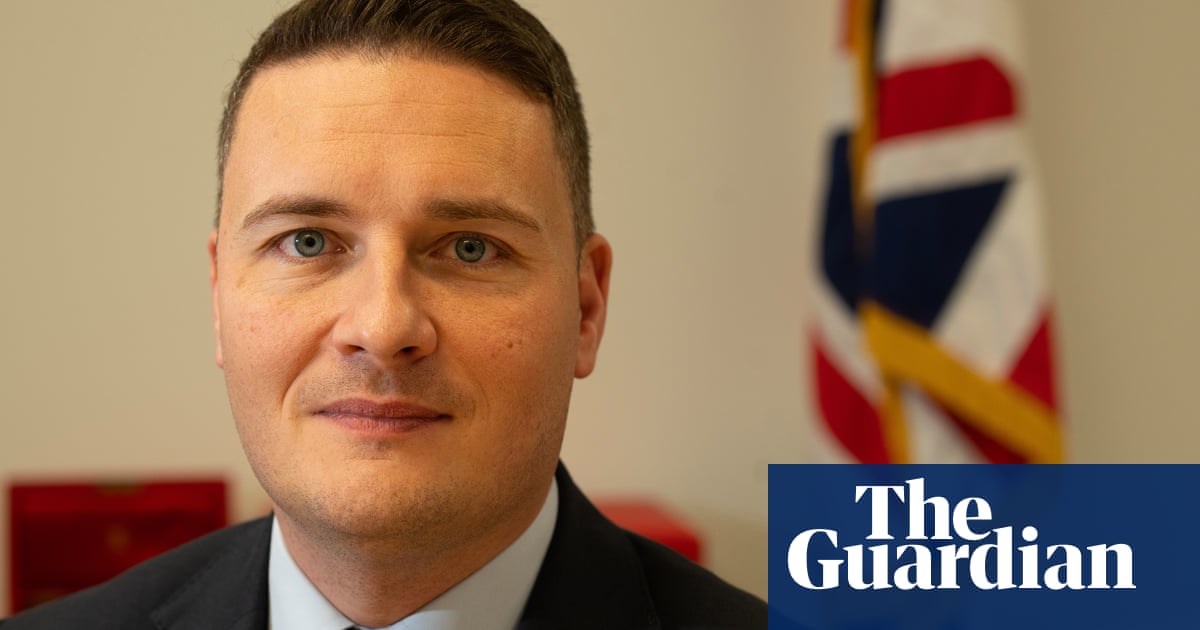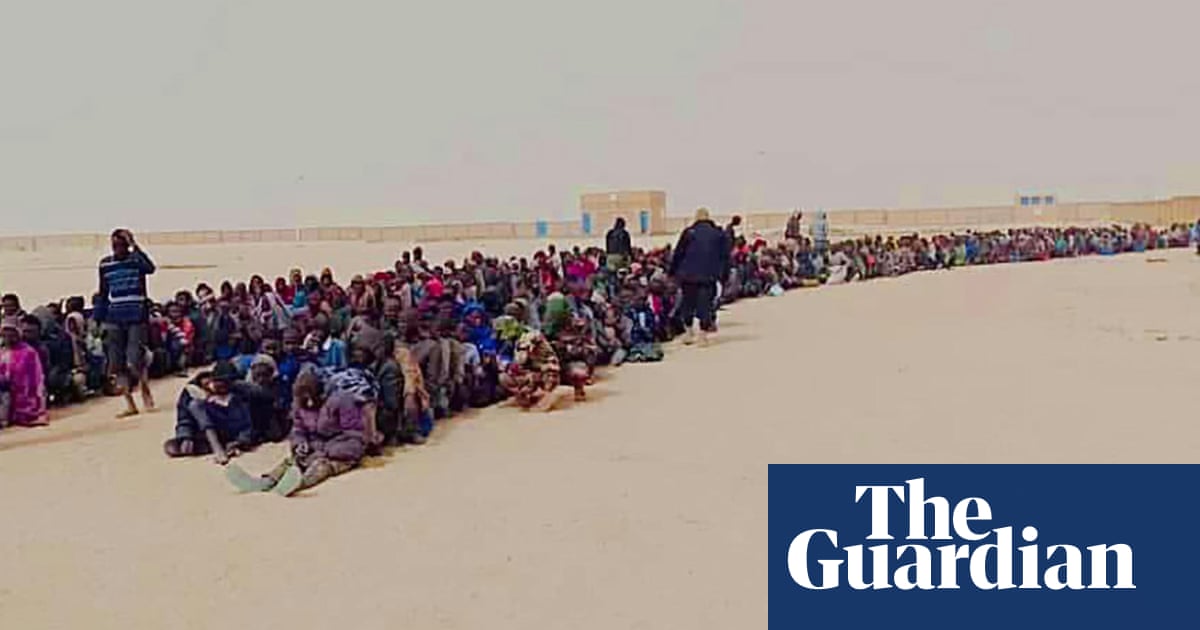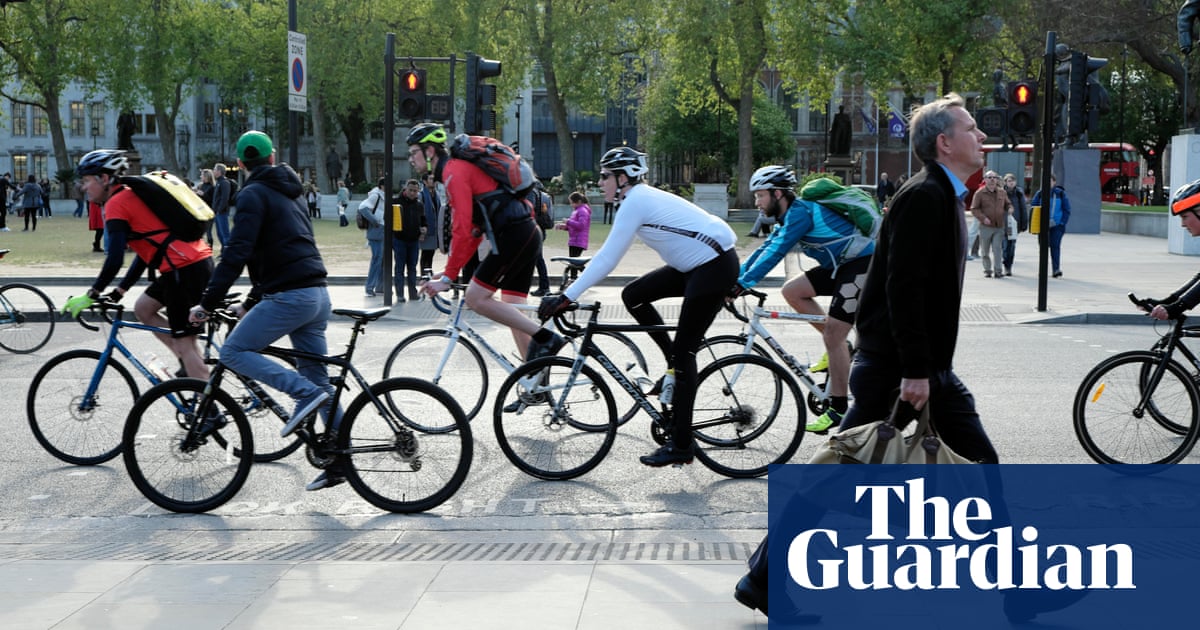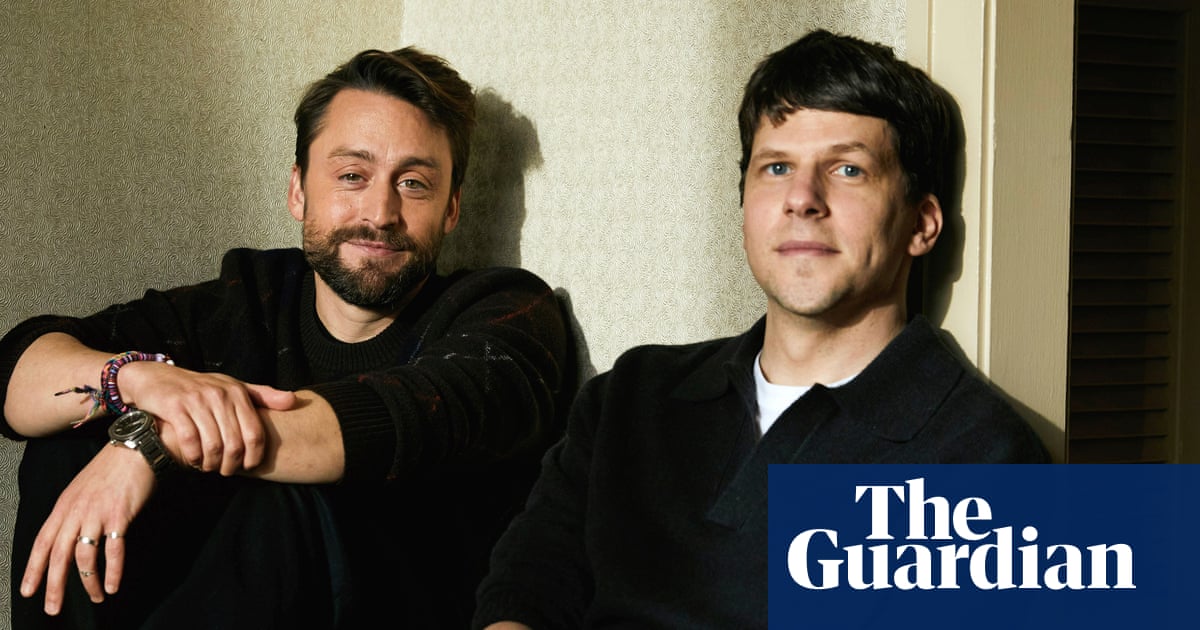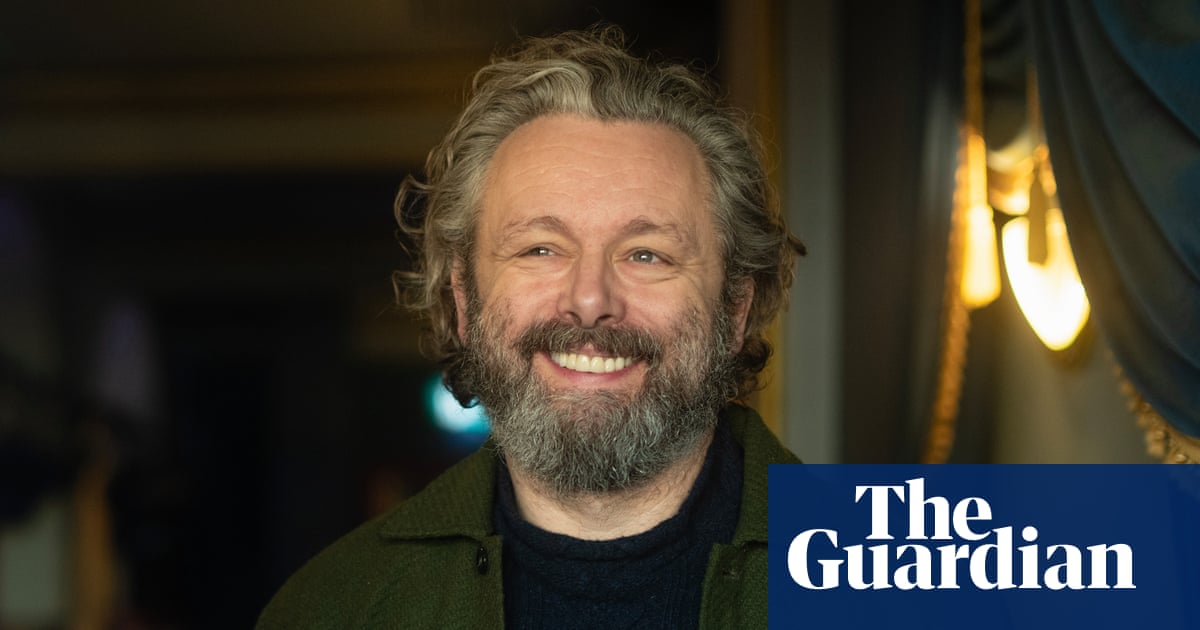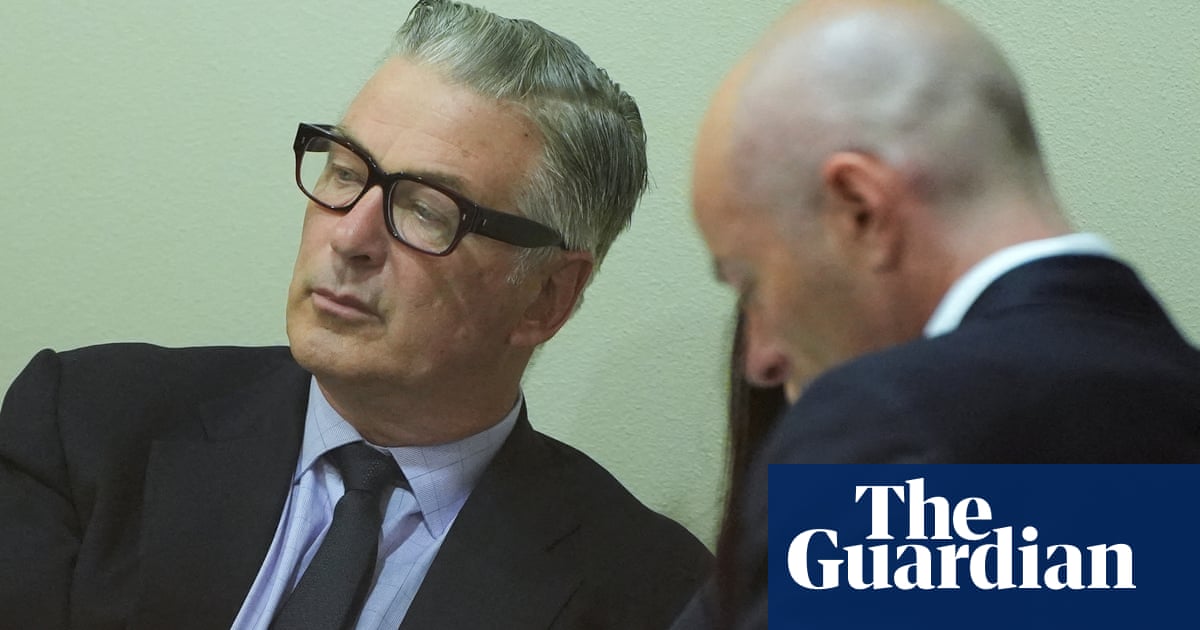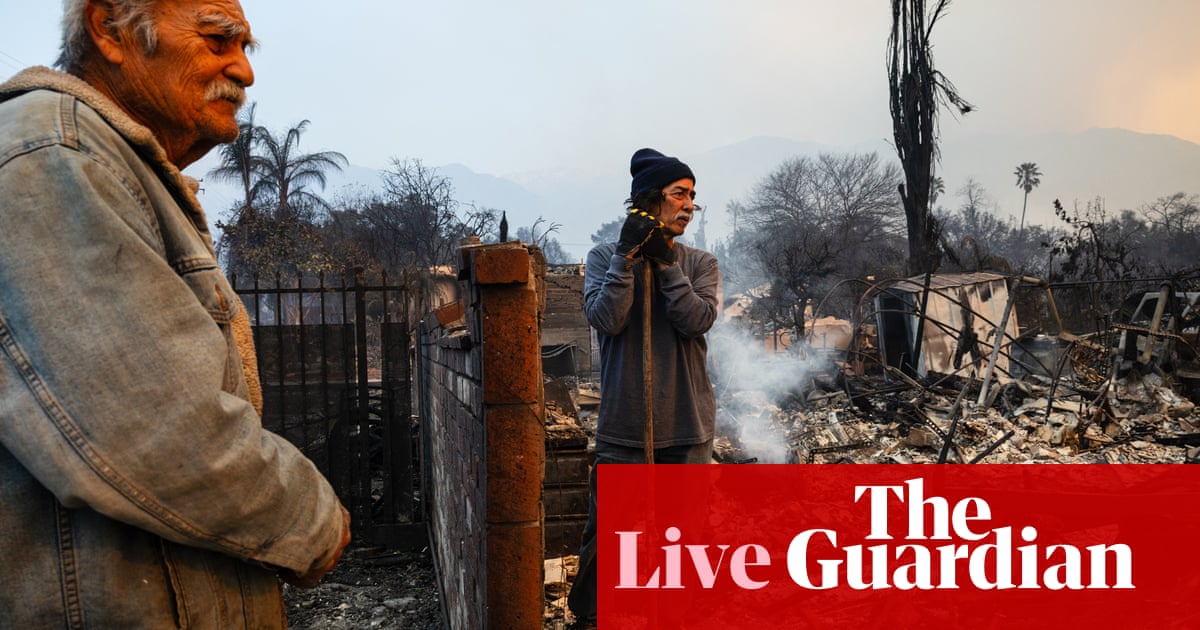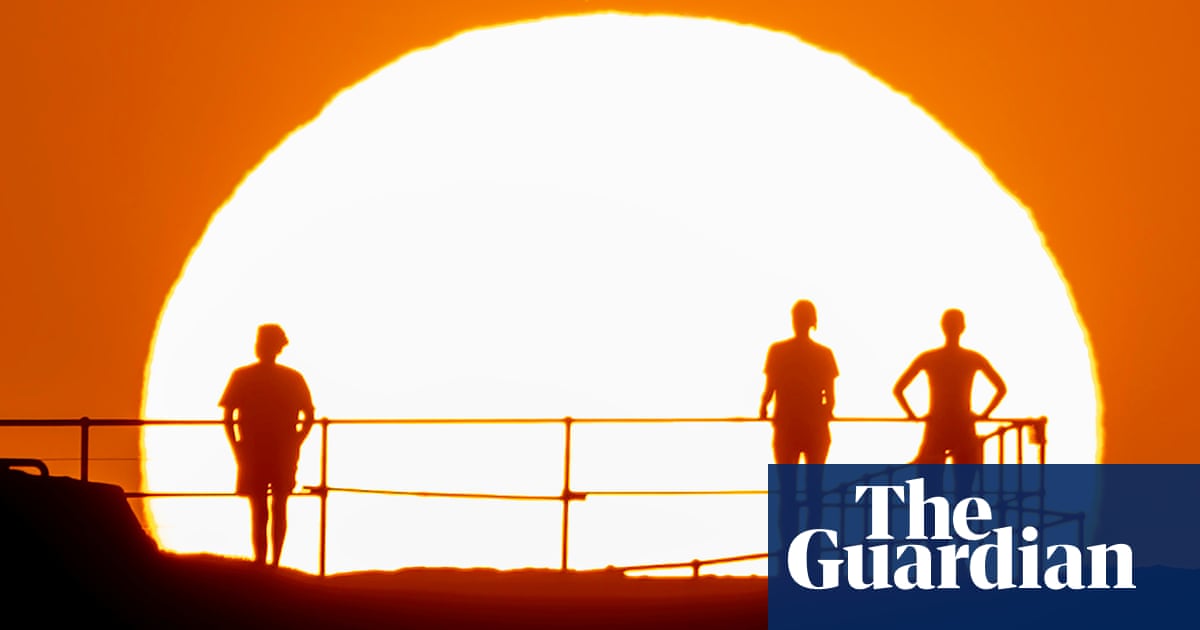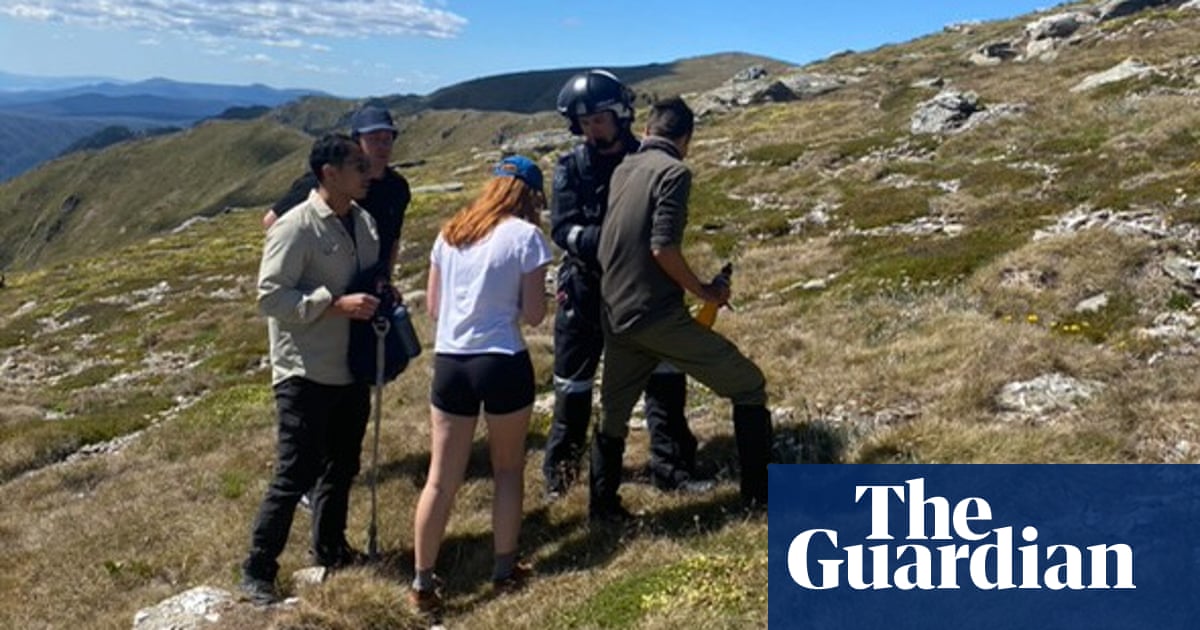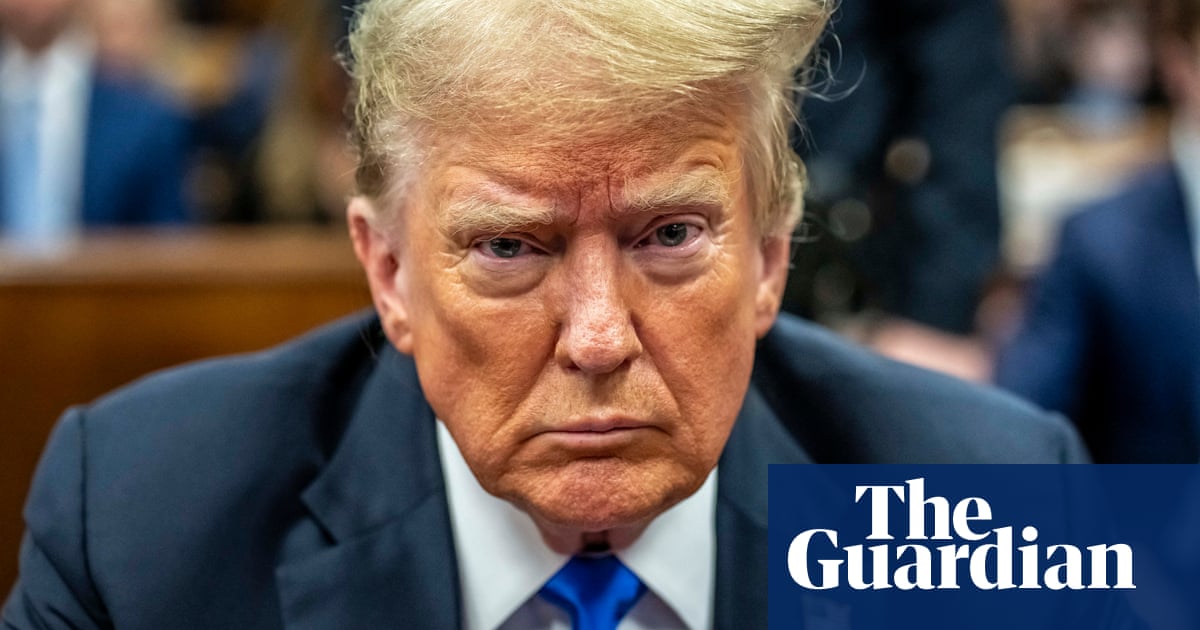Since 2018, Olivia Williams has grown more blunt than she used to be. “I’m a bit less scared of the consequences of saying what I think,” she explains. The actor has never been particularly shy about speaking her mind, as a trawl through any of her old interviews, from the Rushmore days in the late 1990s to her more recent red carpet duties for The Crown, will reveal. But in the last few years, she has become less inhibited, for reasons we will get on to shortly. “Because how bad can it be?” she says, with a droll laugh. “You’re going to die, so it doesn’t matter.”
Williams has positioned herself on the furthest possible edge of an enormous sofa in a posh London hotel. Her parents were both barristers and she is very precise with words. “I’m really, really particular and I’m afraid I will be with you,” she says. This translates to a no-nonsense and crisply funny conversation – she leaves the impression that she does not suffer fools gladly. She hates being misquoted and still remembers, in the early 00s, when a journalist asked her how she felt about Madonna and Gwyneth Paltrow taking theatre parts in London. Williams had said she didn’t care. She was in Hollywood at the time, playing American characters in American films. But the story came out differently: “Gwyneth muscling in on our roles.” In her retelling of it today, she calls the journalist a “fuckwit”, before adding, “I shouldn’t say that. I’m not being very guarded.”
We are here to talk about her latest role, in Dune: Prophecy, a big-budget series that is a prequel to the recent films. Williams’s old friend Emily Watson stars with her, as leader of a nascent, nunlike sect of women, who have supernatural, sometimes violent abilities and world-conquering ambitions. It sounds as if Williams was not immediately wowed by the prospect of joining the Dune juggernaut.
“I had my suspicions about feminist TV based on a novel written by a bloke in the 60s,” she says. “And there are some elements that are very based in the patriarchy. There’s this fascination of, what do women get up to when men aren’t around, and what kind of wisdom is it that men are frightened of? They seem frightened we can read their minds, or know when they’re telling the truth or lying.”

A talking-point TV series with two women in their 50s at its centre feels like a world away from the relatively recent conversations about whether a woman could still get a decent role once she had turned 35. “All the progress of that question is really important,” says Williams, who is 56. “It’s not cured, it’s not better, like so many things, it’s just different. The bollocks is just coming at you from a different direction. The idea that JK Rowling had to use her initials so that people didn’t know she was a woman, because boys wouldn’t read the books if they thought they were written by a girl – there is still a bit of that going on.”
As a woman, she says, she is interested in stories about men written by men. “But it is an achievement to put a show out there and see if everybody is interested in a story led by two middle-aged women, neither of whom are trading on the fact that they look 25. I mean, we are noticeable and possibly unique, Emily and I, in that neither of us has had any work done. Obviously, I’ve had quite a lot of surgical work, but for medical reasons rather than vanity.” Part of the reason she’s been resistant, she explains, is that “I’m not looking to have any surgery that I don’t require to stay alive.”
In 2014, Williams went to the doctor with what she calls “a symptom”, but it wasn’t until four years later, in 2018, that she was diagnosed with “quite an obscure cancer, called neuroendocrine cancer”. Does she mind talking about it? “No, we need to get it out there,” she says. She was working on an underrated TV thriller, Counterpart (“much neglected”), when she first became “so ill that something had to be done”. Neuroendocrine cancer is rare, slow-growing and hard to diagnose, and it can appear anywhere in the digestive tract. “Mine was in my pancreas. It can be in your bladder. It can be in your bowel. But it grows very, very slowly, and then one day, the tumour just gets too big and gets in the way of something else. And that’s when you go to the doctor again, and again and again, going, no, there’s really something wrong, and they take note, by which stage it’s usually metastasised, which is the fuck-up.”
And that’s what happened to you? “Yeah. It was quite obviously bad news to find I had a 7x4cm tumour in my pancreas, but it was really fucking awful news that it had gone to my liver, which is the problem now. The primary cancer they cut out hasn’t come back. I have a third of a functioning pancreas, which is great, but the liver ones keep popping up.” She says that, as I can see, she is fine, she works, she eats and drinks, she lives a normal life. “But every now and then I have to zap these metastases.” So far, they haven’t turned up anywhere other than her liver. She says this while touching the table, a sideboard, all the wood she can see, “but they could do any time. I am this new thing, which I think is going to be very common, which is living with cancer.” The treatments are improving all the time. “And, you know, there is a certain sense of, ‘Can you hurry up and find the one that gets rid of it?’”

There are practical concerns involved in living with cancer. As an actor, it is standard to be insured for every production, but now those assessments sound much more nightmarish. “My insurance meetings are hilarious. They don’t look at you. They don’t see you. They don’t take it from the doctor that you’re a walking, talking human being. They’re just on to the oncologist every day, going, ‘How can you guarantee that this person isn’t going to die during production?’” She laughs, but it sounds dehumanising. “Completely.”
More philosophically, has it changed how she approaches life? “I’m a great believer in denial. I think that’s how I’m coping.” This is where the bluntness comes in. “I think I am a bit more courageous in that I’m a bit more blunt.” People in a similar position will tell her that they’ve managed to “shake off the trivial”, but she still worries about making sure the recycling is sorted properly. “I haven’t managed to clear the decks of my life. I don’t pursue things that are only true or beautiful. I wish I had developed enough disinhibition to not care about things. I feel a bit like Gulliver, pinned down by a thousand tiny pins of life.” When she was first diagnosed, she asked her oncologist if she should cash in her pension. “He said, ‘No, don’t. You might make it through,’” she says. “So I don’t get to have that sort of countdown.” She has been doing this for 10 years. “But I’d say since 2018, I feel the disinhibition kicked in.”
And yet it doesn’t seem like that was ever a problem? She laughs. “So watch out, because I’m even more disinhibited, or less inhibited, than I was.” She once called her experience of filming two episodes of Friends “harrowing” and said she narrowly escaped them plucking off her eyebrows; she described being chased around a hotel room by Harvey Weinstein as like “a badly rehearsed Benny Hill sketch”; for years, she has spoken out about pay disparity, and today, at times, she sounds like a union rep, advocating for better labour conditions for actors. On a film set, in costume, she explains, you become “infantilised”. You can’t tie your own shoelaces in a corset, for example. “You cannot behave as an independent thinking, moving, being. You can’t carry money, you can’t leave the set, you can’t go to the loo. You literally have to ask permission of a teenager with a walkie-talkie to go and take a shit. I mean, it is really a very strange thing.”
But she loves this very strange thing. When Williams was at school, she wanted to be a dancer, but she grew too tall. “I wasn’t good enough and I was the wrong shape and size. And rather than try to make myself the right shape and size, I was just like, ‘Oh, fuck, I’ll do something else then.’ I could see the path of eating disorder and self-loathing, or I could just celebrate my height and my bum, and do something else.” Williams’s eldest daughter (she has two, with her husband, the actor and writer Rhashan Stone) is now training to be a dancer in the US. “How can I possibly tell her to do something more sensible than I do? She loves it and she dances beautifully,” she says.

Williams spent most of her 20s as a jobbing actor, doing obscure Restoration plays at the Royal Shakespeare Company, coincidentally, where she first met Watson. She once said that she couldn’t get a part on The Bill and set herself a limit: by 30, she decided, if it still wasn’t working, then she would give up acting and do something sensible, like law, as her parents and sister did. Then at 29, Kevin Costner came along, and cast her in The Postman, a film that was both a big deal and a big flop, but which launched her career in Hollywood. She followed it up with Rushmore and The Sixth Sense, catching the last wave of great 1990s cinema. “It makes you sort of bulletproof, if you love what you’re doing,” she says.
What is it that she loves? “There’s so much about ADD and ADHD and concentration, and I am very distractible. I have no idea if I have any of these neurological conditions, but it is the focus of it. You may not be distracted. I remember when I did The Sixth Sense there was this scene where I was having a lovely evening with Bruce Willis after a glass of wine. As an acting aide, [director] M. Night Shyamalan had got permission to fire a gunshot on the set to shock me.” The gun went off. “I heard the bang and I just kept acting. My focus is on doing what I’ve been directed to do and not to be distracted by a gun.” Her co-star, Donnie Wahlberg, was standing there semi-naked with a smoking gun in his hand. She was not expecting him, so she just ignored him. “They all thought I was fucking insane. But when I’m acting, I can tune out a gunshot quite close to my head.”
For chaos of a different kind, Williams saw out the end of The Crown, as Camilla Parker Bowles to Dominic West’s Prince Charles. The Crown had become a tabloid fixture and a headline magnet. Was she ever reluctant to sign up to that circus? “No!” she laughs. “This is awful, and my awfulness will be revealed, but I was slightly like, ‘Why did it take them until season five to come to me?’ I talk posh. I was a fully paid-up signee to the Sloane Ranger Handbook.” She grew up in London, in Camden, and went to Cambridge but, she says, she was never full Sloane.
“I was torn between Siouxsie and the Banshees and the Sloane Ranger Handbook. One day I would be collar up and pearly lipstick on, down at the Admiral Codrington [a pub in Chelsea] trying to drink beer with people who went to public school. This is when I was still experimenting – well, I still am – with who I was, but then I’d be down Camden Lock in my bullet belt, with my badly dyed hair.” I’d like to see pictures. “I’ve got them all. It’s all recorded.”

Dune: Prophecy is set in the immediate aftermath of a brutal war between humans and the banned “thinking machines”, which sound a lot like AI. Williams recently signed a big creative industry petition against the threat posed to artists’ livelihoods by AI, which trains itself, for free, on existing material. “I want to get on to some AI issues,” she says, briskly. “Clause 18 of 18 pages of special stipulations in most contracts that come from America says the producer owns your likeness, as defined by the producer, on any platform now existing or yet to be devised throughout the universe, in perpetuity.” If that sounds like madness, then it gets worse. “When I say to my American attorney, ‘What the fuck?’ he goes, ‘Oh, don’t worry, Olivia, they’ll never enforce it.’ And so actors sign these things, and if your agent objects, business affairs go, we’re moving on, we’ll go find someone new. It’s corporate bullying.” Ever the daughter of lawyers, she says it wouldn’t stand up in court. “But who can afford to take Netflix, HBO, Warner Brothers to court? Who’s going to do that?”
I think if you had to choose an actor to fight your corner, then Williams, no-nonsense daughter of barristers, outspoken, increasingly blunt and fearless, would be the one to pick.
“I was raised to be precise, yeah,” she says. “Second nature.”
Dune: Prophecy will be available from 18 November on Sky and Now
Stylist Hope Lawrie; hair and makeup Ciona Johnson-King at Aartlondon using Oxygenetix, Elf and Color Wow

.png) 2 months ago
13
2 months ago
13

